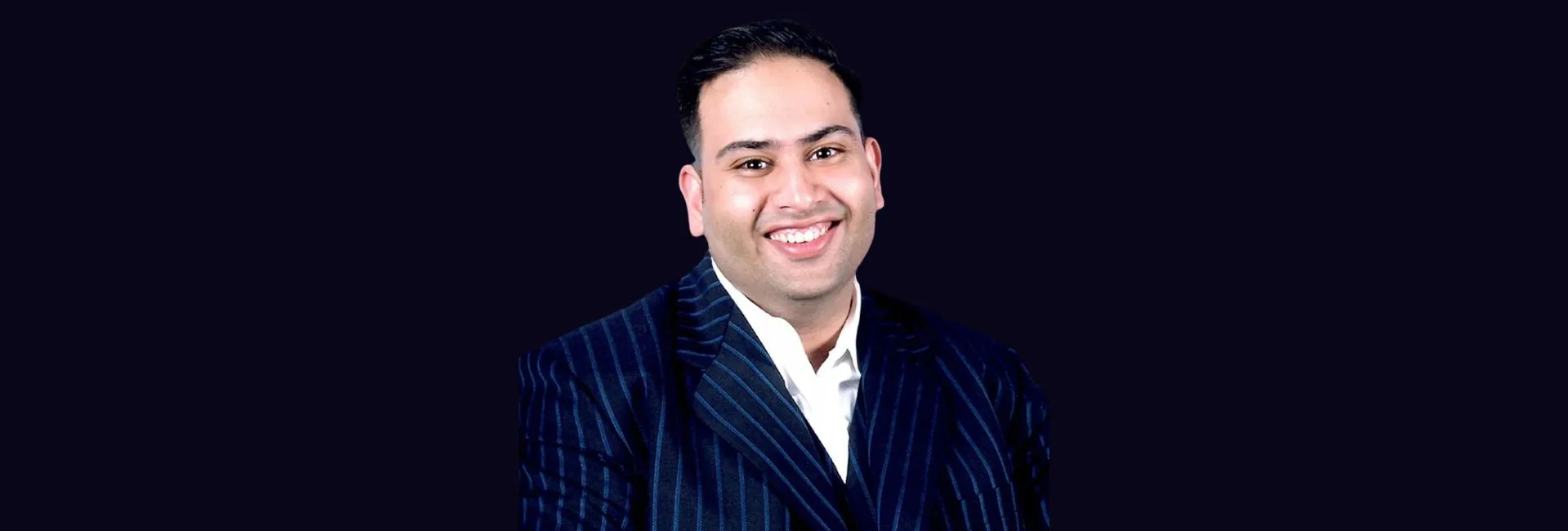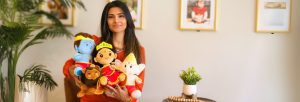(June 14, 2025) As a child, Atul Bhatara would watch his mother and aunt in the kitchen, instinctively blending yogurt with turmeric, cinnamon, or saffron — home remedies they believed in for healthy skin. They’d apply the mix to his face without ceremony, just part of everyday life. The simplicity of those moments stuck with him.
Decades later, after living with cerebral palsy and undergoing 14 surgeries, Atul turned those memories into purpose. He launched Atul Skincare, a New York-based brand rooted in Indian kitchen wisdom. But for Atul, this wasn’t just about skincare – it’s a way to bring his heritage into the spotlight and create space for conversations around disability, identity, and inclusion in the beauty world. As an entrepreneur with a disability, he’s using his brand not just to sell skincare—but to challenge ideas of who gets to be seen, and to open doors for others like him. “My brand isn’t just about skincare but I want it to be a channel for bigger conversations,” he tells Global Indian.
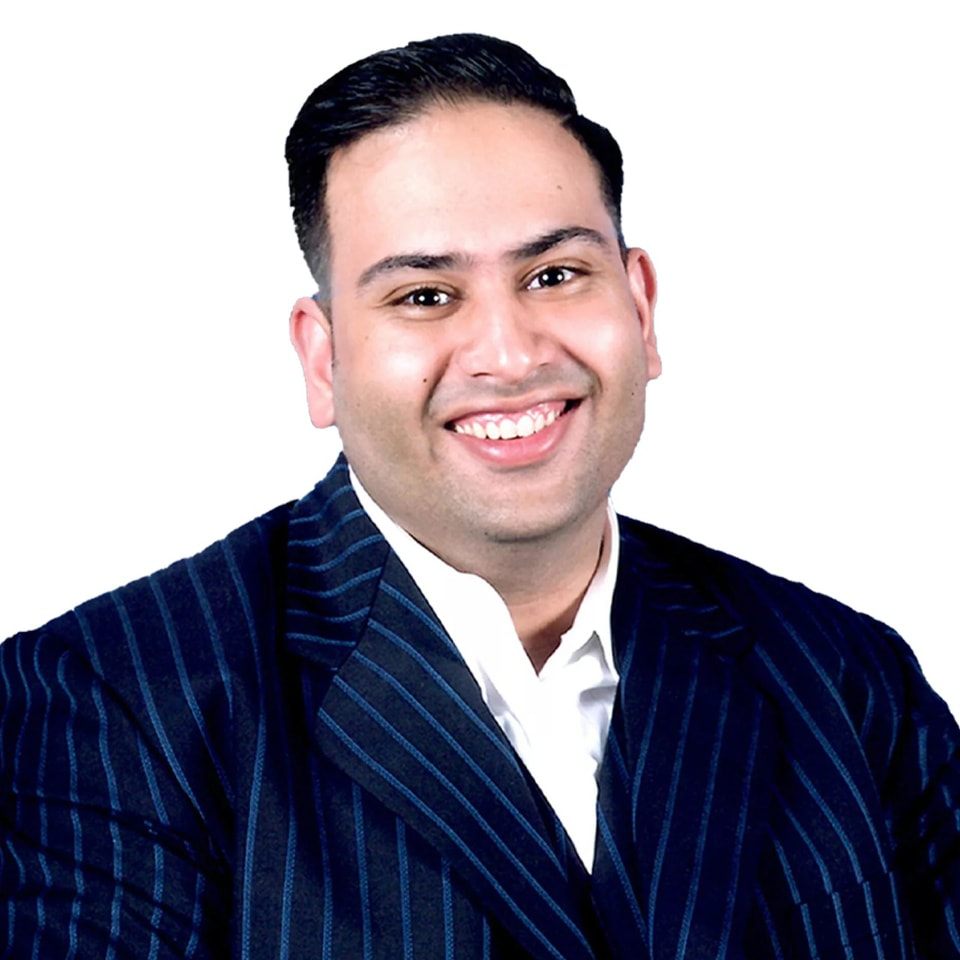
Atul Bhatara
Cerebral Palsy, Cultural Roots, and a Grandmother’s Unwavering Faith
Born premature, weighing less than three pounds, Atul opened his eyes in a hospital in New York in the 1980s. At the time, even in the US, doctors had limited knowledge if how to handle premature infants. “They didn’t know if I’d be able to talk, see, or walk. It took them 14 months to diagnose me with cerebral palsy,” says Atul, whose parents immigrated to the US from India. Although his mom was a trained nurse and his father, a microbiologist, it was not easy for them to work in a foreign country and “raise a disabled child with health issues.” But they did know how to love Atul despite the challenges. They gave him their undivided care and attention, and eventually sent him to New Delhi to live with his grandmother and be nurtured by the extended family. “Even with the distance, they came back often to visit me,” he adds.
Those three years in New Delhi were formative, shaping how he saw himself through the lens of love, kindness and compassion. “I always felt loved.” His maternal grandmother became his biggest cheerleader who instilled in him a quiet confidence and a sense of possibility. “She taught me that I could be and do whatever I wanted. At a very young age, I was taught to feel special. I was able to dream.”
The early years in India shaped Atul – it made him confident. “Living in New Delhi enabled me to understand my culture and develop a relationship with my faith and religion. It wrapped me in a lot of unconditional love.”

Navigating the Shift: From Special Ed to Self-Advocate
At the age of seven, Atul returned to New York, a transition that left him unsettled. “I had almost forgotten how to speak English. I had to learn how to live in a completely different culture — the American way.” Though his family never made him feel “abnormal”, but “I had a problem that everyone could see.” People would often stare and stop to ask, “What happened to him?”
Before the Americans with Disabilities Act was passed in 1990, Atul was placed in a special education class by default—a common practice then, without looking at each student’s actual ability. “They would put all the disabled children, without considering their potential, in one class. But I knew I didn’t belong here.” Once, during a lesson, Atul interrupted his teacher with questions and counterpoints, as though they were equals in a philosophical exchange. “‘You shouldn’t be in this class. It is too easy for you,’ she told me.” Within two months, and thanks to her support, Atul was moved into regular classes. It was a turning point. “It opened a world of possibilities for me, the magnitude of which I couldn’t comprehend at the time. But I do believe, when you show up in life in any way, doors open,” says Atul.
To make things easier for him, Atul’s grandmother and extended family eventually moved to Queens, New York. “I’d come home from school to a full house, and being the eldest, I was the centre of attention, and that’s all a kid wants. Though I couldn’t run or play like other kids, I’d spend my time watching films or dreaming,” says Atul. He never let his disability stop him from dreaming big. “I had people in my family who questioned the need for my education. But my mentor once told me, ‘Don’t let someone else’s opinion of you become your reality’ – and I’ve held on to that ever since.”

Atul with his mom
He loved school – it gave him a chance to dream and imagine a future filled with possibilities. Even as a teenager, Atul knew how to stand up—not just for himself, but for others too. When he was told he couldn’t go on stage to get his honor roll pin because of his wheelchair, he refused to accept it. Instead, he used crutches and leg braces to walk up, determined to be seen like everyone else. But it wasn’t just about him. He raised his voice for other wheelchair-bound students who didn’t have that option, challenging the school to do better. A year later, a lift was installed on stage. “That moment taught me two things,” he says. “Never accept things as they are — just because it hasn’t been done before doesn’t mean it can’t be done, and the importance of trying to be a voice for others and making an impact for years to come.”
Indian at Heart, American by Grit—And Unapologetically Both
Growing up in New York with Punjabi roots, Atul loved straddling two different worlds. “Even as an Indian family we loved watching baseball and NBA. It was the time of Michael Jordan. Since we were the oldest in the family, we were bringing the American culture home and educating our family about what’s going on in the world.”
He went onto graduate from St. John’s University in New York with a degree in finance before joining his family business – an Indian-rooted venture that was, in fact, his own idea. While he was in college, his mother and maternal aunt often voiced concerns about his cousins becoming ‘too American.’ In response, he suggested involving them in an Indian-rooted business to reconnect them with their heritage. That idea led to the launch of World’s Fair Marina — a banquet hall in New York. “We do over 300 weddings in a year, of which 80 percent are Indian. That’s how they got exposed to the Indian culture and food. Now, it’s cool to be an Indian in the US. We have Indian neighbourhoods in New York but back in the day, we were only four Indian students in the school and Americans weren’t exposed to our culture much.”
Despite that the city gave Atul a unique sense of confidence. “There is a real sense of visibility here – no matter how different you are, there is a place for you. Back in the 90s, my mother always bought me expensive shoes, even though I was in a wheelchair. At school, the other kids would notice the shoes before they noticed the chair. I was always the centre of attention.”
What Began as a Childhood Ritual Became a Brand with Purpose
After years of working in the family business, the pandemic forced Atul to pause — and pivot. With events coming to a halt, he was unsettled by how quickly everything could change. “I started looking for something with more freedom,” he says. “The business was running on autopilot, and I realized I was craving something more creative. I was ready for a new chapter.” That turning point came through a chance meeting with a private skincare lab. “I had no idea these labs existed—places that actually help you create your own product. It was a lightbulb moment.”
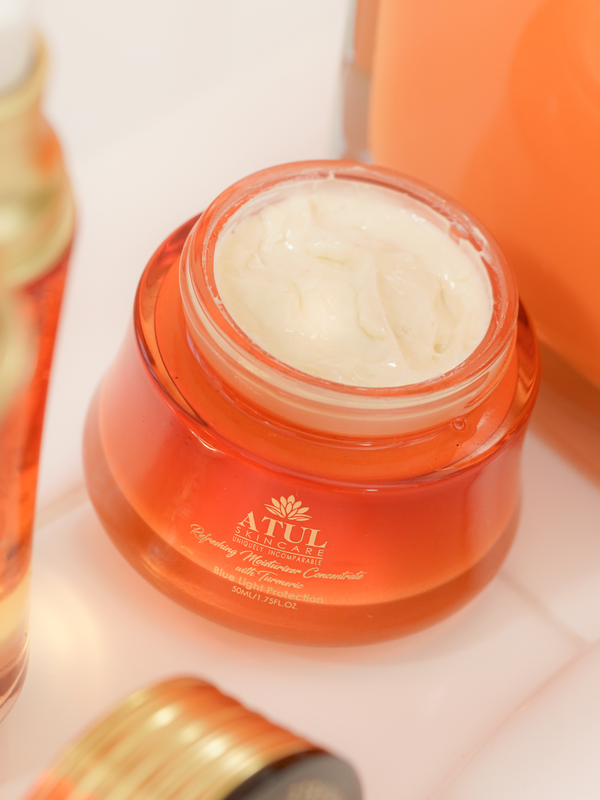
Atul Skincare
That discovery set the stage for Atul Skincare – a brand inspired by the home remedies of his childhood. Atul grew up watching his mom and aunt mix yogurt with turmeric, cinnamon, or saffron and apply it as a quick face pack. “We just knew it was good for the skin,” he says. Wanting to bring that tradition into a modern formula, he built the brand around Indian active ingredients like turmeric and cinnamon. Each product also includes liquid blue light blockers to protect against screen and sun exposure—known to damage collagen and accelerate aging. It’s a blend of heritage and innovation, shaped by personal memory.
But convincing an American lab to formulate a product using Indian active ingredients turned out to be challenging for Atul. “They have never heard of putting kitchen spices like turmeric into skincare,” says Atul. But he was clear about is vision, It took two years to bring the product to life. “This is the story of my life – breaking one barrier after another.”
Redefining Beauty, Celebrating Ability, and Building Space to Be Seen
Atul Skincare isn’t just a brand rooted in Indianness – it also creates space for larger conversations, especially around disability. As an entrepreneur with disability, Atul wants to raise awareness and shift perceptions—showing the world what children with disabilities are truly capable of. “A young adult with a disability, exploring beauty and fashion in their 20s, might come across Atul Skincare and feel seen—realizing that they can do it too. My brand isn’t just about skincare but I want it to be a channel for bigger conversations. As a person of Indian descent in New York, I think of the disabled children in India and I hope to very soon launch the brand in India as well, and foster a charity or nonprofit where the abilities of these people are celebrated.”
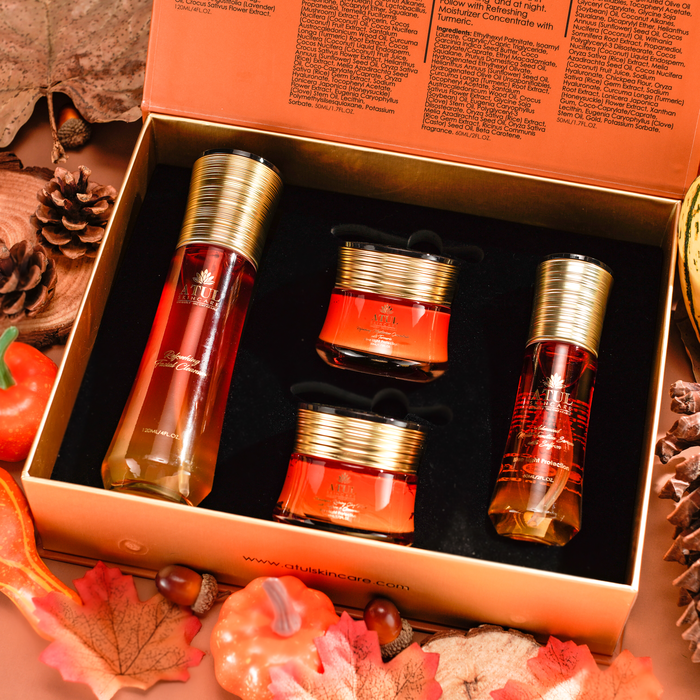
Atul means unique, and that’s how he sees his company and product: something with its own story and purpose. “If I can inspire change through that story, I’ve done my part,” says the entrepreneur whose target audience is yoga and wellness community.
Atul’s journey is a powerful example of how someone with cerebral palsy can turn challenges into purpose. He’s not just building a skincare brand—he’s using his platform to change how the world sees disability. Through his work, Atul is raising awareness, breaking stereotypes, and proving that people with disabilities can be leaders, creators, and changemakers. His story inspires others to dream beyond limits and believe that their differences can be their greatest strength.
Also Read: Palak Sehgal: From Danish agri-tech to Indian skincare, a cross-continental leap in entrepreneurship
